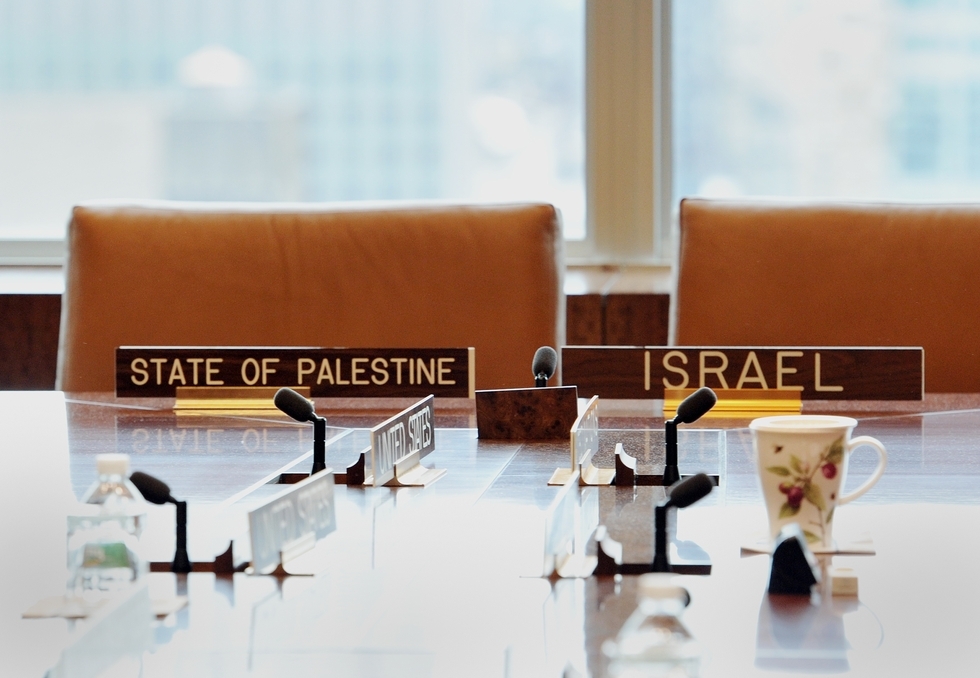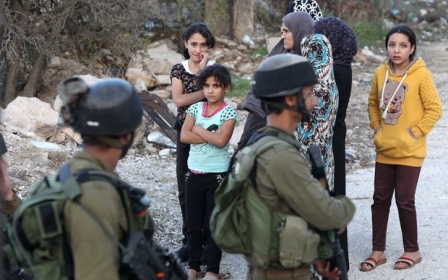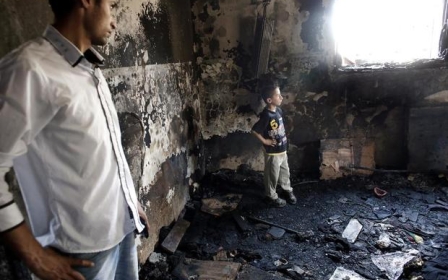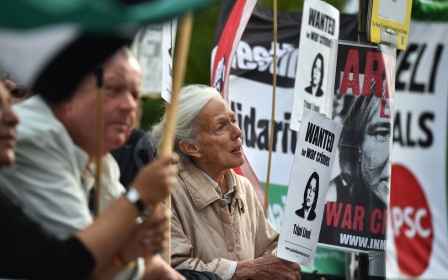Why is the Middle East Quartet still there?

The Middle East peace process has been in deep freeze since US Secretary of State John Kerry's last attempt ended in failure in 2014. This was closely followed by the deadly war on Gaza in 2014, which left thousands of casualties mainly on the Palestinian side and extensive damage to homes and the infrastructure. Little reconstruction has followed, as the strip continues to be under siege.
The animosity between the Palestinian and Israeli leaderships that resulted from the war continued, and no serious attempt was made in 2015 to bring the two sides to the negotiating table. In fact, the Israeli elections brought Benjamin Netanyahu back as prime minister, and his pre-election promise that there would be no Palestinian state established on his watch was a firm indication that any attempts to restart negotiations would hit another brick wall.
Since October 2015, the "uprising" which hit the streets of Jerusalem and the West Bank has left tens of Israelis dead and over 150 Palestinians also losing their lives. Efforts to calm the situation have had little success. On his most recent trip to the region, Secretary Kerry failed to convince the Palestinian president, Mahmoud Abbas, to reign in the Palestinian youth to end attacks on Israelis. The "uprising" has been an accumulation of attacks carried out by individual young men and women, rather than being led by the Palestinian Authority or any individual faction, and, therefore, the PA’s ability to calm the situation is limited.
An attempt by chief Palestinian negotiator Saeb Erekat to restart talks was flatly rejected by his counterpart, then Israeli deputy prime minster Silvan Shalom, following meetings in Amman and Cairo in July and August last year. In November 2015, US President Barack Obama concluded “that right now, barring a major shift, the parties are not going to be in the position to negotiate a final status agreement".
As the situation on the ground worsens by the day, the two sides left to their own devices seem incapable of initiating serious negotiations. There is a desperate need for an external push. If this is not going to come from the Americans, then who can provide it?
The Arab League has proved to be an impotent body in terms of anything but condemnations of Israeli policies and even they have become few and far between. The EU continues to take small steps to pressure Israel, including its recent decision to implement labelling of products from the illegal Israeli settlements. Individual European countries, particularly France, have attempted to bring a resolution to the United Nations Security Council to nudge the peace process but have not succeeded thus far.
Enter the Quarter?
With individual efforts failing and the UN continuing to be incapable of implementing its Security Council resolutions, it is reasonable to look for other bodies that could play a role in ending the conflict. One body that was set up specifically to fulfil this role is the "Middle East Quartet". It is made up of the US, the EU, UN and Russia and was established in 2002 to aid the peace process.
Its early days brought some hope, particularly when it published its Roadmap for Peace in 2002. However, its implementation process reached a deadlock in phase one and it was never implemented. The appointment of Tony Blair as its special envoy in 2007 raised hopes he could bring the skills that brokered the Northern Ireland Good Friday agreement to bear on the Palestine/Israel conflict.
However, this early optimism evaporated as Palestinians saw him as biased in favour of Israel. In 2012 he was effectively declared persona non grata in the Palestinian areas due to this perceived bias. His and the Quartet’s failure to advance peace between the two parties continued and this set-up failed to bring a quick ceasefire when Israel started its 2014 war on Gaza. He resigned in May 2015.
The Saban Center for Middle East Policy at Brookings evaluated the Quartet’s performance in 2012 in its paper "The Middle East Quartet: A post-Mortem". It concluded that but for some early successes up to 2003 the Quartet has not provided any tangible benefits, except “ensuring American engagement in the peace process”.
Its most damaging impact on the Palestinians came through the declaration of the Quartet "Principles" in 2007. Those were “commitment to the principles of nonviolence, recognition of Israel, and acceptance of previous agreements and obligations, including the Roadmap". Those principles became a millstone around the Palestinians' collective neck, playing a key role in the division between the ruling party Fatah and the winner of the 2006 elections, Hamas. This division lasts to this day as Hamas refuses to accept these principles, a position which Israel and the international community uses to condition aid, the lifting of the siege and recognition of any future government that includes Hamas.
Expensive presence
The Quartet’s presence in the Occupied Territories moved from a temporary arrangement to a more permanent one with an office established in Jerusalem. This all comes at great cost to the donors. In response to a Freedom of Information request in 2014, the British Foreign Office provided an insight into the cost of maintaining the Quartet.
It confirmed that in 2007, the Department for International Development (DFID) had approved a one-off payment of £400,000 (about $570,000) from the UK to UNDP to help set up the office and that the EU and Norway had provided an additional $3 million. Add to this the cost of the 59 "main sessions" held since 2002 and the numerous trips made by staff and the special envoy and this becomes a very expensive operation that has little to show for its efforts.
The Office of the Quartet Representative morphed into the "Office of the Quartet". A glance at its website confirms that the position of the special envoy has been disbanded and its head of mission, Kito de Boer, explains this “reflects the desire by the Quartet Principals to be more directly engaged with the realities on the ground”. He argues that the new set-up “reflects the reality that, 20 years after Oslo, time is not on the side of those committed to the two-state solution”.
He states that “this is a time for bold action” but then repeats the traditional diplomatic language that is anything but "bold" as he says: “In September 2015 the Quartet 'expressed its serious concern that current trends on the ground are dangerously imperilling the viability of the two-state solution'." To counter this trend “positive and significant policy shifts, particularly in Area C, will be critical to increasing the Palestinian Authority's ability to address key economic, security and institutional challenges, and can be advanced while respecting Israel's legitimate security needs," a statement that could and is made by most members of the Quartet on a regular basis but to no avail.
Having lost its high-profile envoy and having made no real impact on the ground since 2003, the Quartet’s role is now unclear. There is no evidence that it can offer much in the future and it is perhaps time to put it out of its misery and close another body that has lived off the non-existent peace process gravy train while making no real contribution to peace.
- Kamel Hawwash is a British/Palestinian engineering Professor based at the University of Birmingham and a long standing campaigner for justice, especially for the Palestinian people. He is Vice Chair of the Palestine Solidarity Campaign (PSC) and appears regularly in the media as commentator on Middle East issues. He runs a blog at www.kamelhawwash.com. He writes here in a personal capacity.
The views expressed in this article belong to the author and do not necessarily reflect the editorial policy of Middle East Eye.
New MEE newsletter: Jerusalem Dispatch
Sign up to get the latest insights and analysis on Israel-Palestine, alongside Turkey Unpacked and other MEE newsletters
Middle East Eye delivers independent and unrivalled coverage and analysis of the Middle East, North Africa and beyond. To learn more about republishing this content and the associated fees, please fill out this form. More about MEE can be found here.





